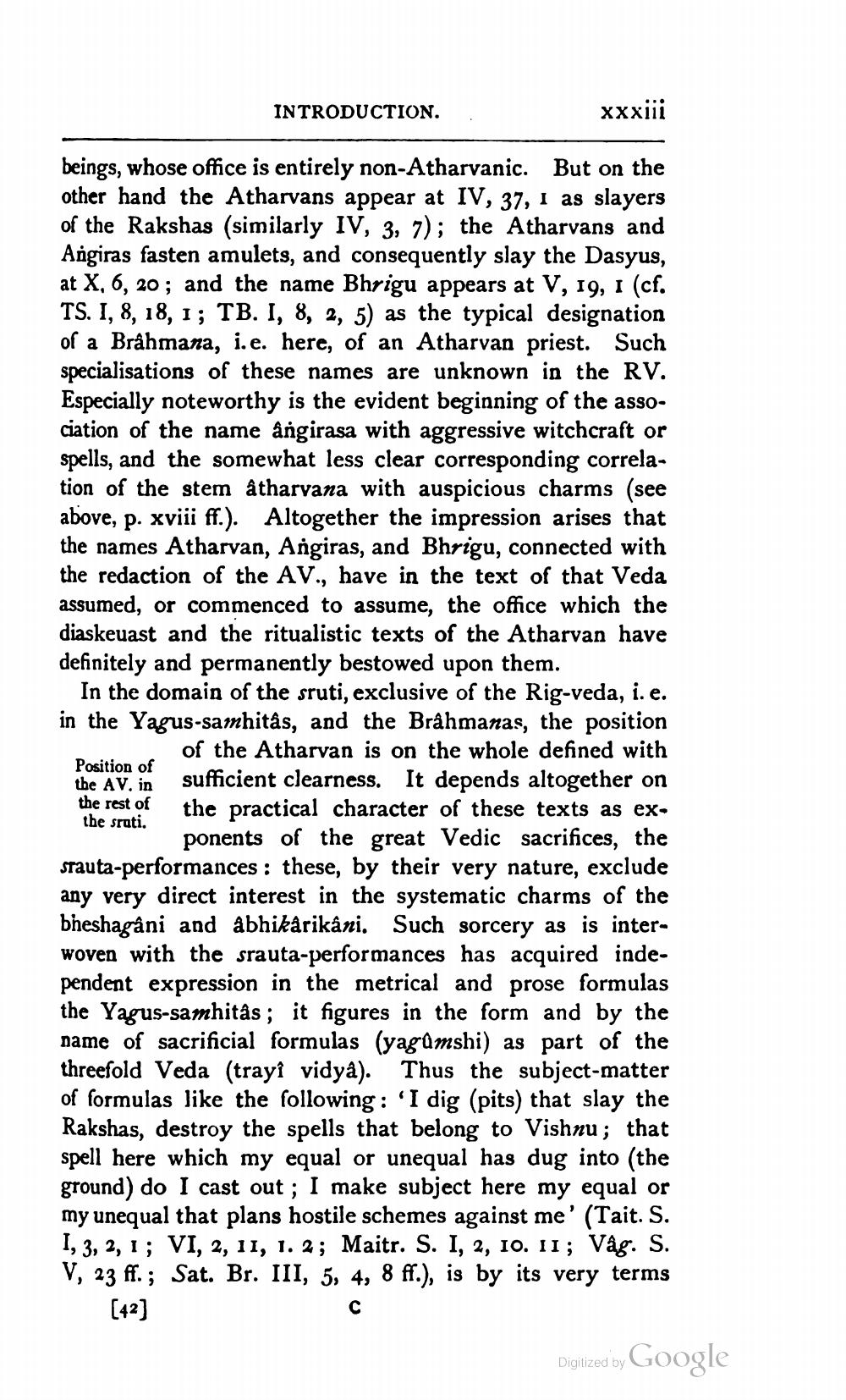________________
INTRODUCTION..
xxxiii
beings, whose office is entirely non-Atharvanic. But on the other hand the Atharvans appear at IV, 37, i as slayers of the Rakshas (similarly IV, 3, 7); the Atharvans and Angiras fasten amulets, and consequently slay the Dasyus, at X, 6, 20; and the name Bhrigu appears at V, 19, 1 (cf. TS. I, 8, 18, 1; TB. I, 8, 2, 5) as the typical designation of a Brahmana, i.e. here, of an Atharvan priest. Such specialisations of these names are unknown in the RV. Especially noteworthy is the evident beginning of the association of the name angirasa with aggressive witchcraft or spells, and the somewhat less clear corresponding correlation of the stem atharyana with auspicious charms (see above, p. xviii ff.). Altogether the impression arises that the names Atharvan, Angiras, and Bhrigu, connected with the redaction of the AV., have in the text of that Veda assumed, or commenced to assume, the office which the diaskeuast and the ritualistic texts of the Atharvan have definitely and permanently bestowed upon them.
In the domain of the sruti, exclusive of the Rig-veda, i.e. in the Yagus-samhitås, and the Brahmanas, the position
of the Atharvan is on the whole defined with Position of the AV. in sufficient clearness. It depends altogether on the rest of the practical character of these texts as ex. the srati.
ponents of the great Vedic sacrifices, the srauta-performances : these, by their very nature, exclude any very direct interest in the systematic charms of the bheshagani and abhikärikäni. Such sorcery as is interwoven with the srauta-performances has acquired independent expression in the metrical and prose formulas the Yagus-samhitas; it figures in the form and by the name of sacrificial formulas (yagamshi) as part of the threefold Veda (trayî vidya). Thus the subject-matter of formulas like the following: 'I dig (pits) that slay the Rakshas, destroy the spells that belong to Vishnu ; that spell here which my equal or unequal has dug into the ground) do I cast out; I make subject here my equal or my unequal that plans hostile schemes against me' (Tait. S. 1, 3, 2, 1 ; VI, 2, 11, 1. 2; Maitr. S. I, 2, 10. 11; Våg. S. V, 23 ff.; Sat. Br. III, 5, 4, 8 ff.), is by its very terms [42]
Digitized by Google




